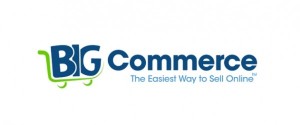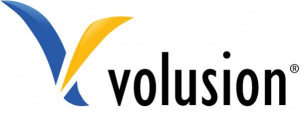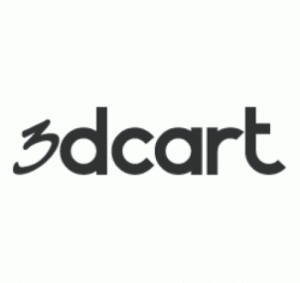Do you manage an online business? If you want to earn the maximum revenue, your business website must have user-friendly buying options, a conversion-optimized layout and search-optimized pages. Your site also needs the kind of professional appearance that will help you to build your brand and leave a good impression on potential buyers. As the founder of one of L.A.’s leading web development and design firms, I have used all of the major eCommerce platforms, and I know firsthand which shopping carts provide the best value. Before you invest in any ecommerce platform, consider the pros and cons of some of the industry leaders.
BigCommerce
The Breakdown: BigCommerce bills itself as “the world’s easiest to use e-commerce software.” Launched in 2009, BigCommerce picked up almost 9,000 customers in its first two months alone, and has shown no signs of slowing down after 3+ years in business. Founder and CEO Mitchell Harper told Small Business Computing, “We created BigCommerce because we felt there was a need for a really simple yet really powerful e-commerce platform that online retailers could use to sell their products and reach more customers.”
The Pros: BigCommerce is definitely one of the easiest and most user-friendly platforms out there. It’s also extremely versatile, allowing you to freely edit PHP, HTML and CSS. So it makes a great option for professional developers as well as the technically-impaired. The platform is also extremely feature-rich, and offers the maximum level of security from hackers.
The Cons: While BigCommerce is a very cost-effective solution for medium-sized and even small businesses, it is not the most cost-effective ecommerce platform on the market. With BigCommerce, you pay for ease of use and a wealth of features, but if you’re looking for the cheapest shopping cart out there, BigCommerce isn’t it.
Shopify
The Breakdown: According to Shopify’s website, “We help emerging small businesses get off the ground and grow into successful companies. We do this by creating great technology and by making it accessible to people that previously wouldn’t be able to afford it.” The company has been around since 2006, and has received accolades from The New York Times, TechCrunch and Fast Company.
The Pros: Shopify offers some of the most attractive pre-designed templates available, so if you’re looking for a stunning layout, Shopify is one of your best solutions. Additionally, the Shopify App Store has one of the biggest libraries of apps and extensions available, so there is very little that you can’t customize with the click of a button.
The Cons: Shopify does not offer round-the-clock support, so if your site breaks down on Sunday or in the middle of the night, don’t expect an immediate resolution. Additionally, Shopify plans are slightly costlier than some of the competitors.
Magento
The Breakdown: According to Magento’s website, “Magento offers flexible, scalable eCommerce solutions designed to help businesses grow and succeed online.” The platform is currently used by more than 125,000 businesses worldwide, and is one of the top industry leaders.
The Pros: If you’re looking for the most affordable platform available, it doesn’t get any more cost-effective than the Magento Community Edition, which is completely free. The more premium editions offer enhanced features while still saving you money, because the plans are affordable and include no transaction fees. Magento is also highly customizable, giving you the ability to edit PHP. Magento also offers great SEO and conversion optimization tools.
The Cons: Magento is not the best option for newbies. Magento is an extremely powerful and versatile platform, and the seemingly-endless array of features can be somewhat overwhelming for beginners and novices.
Volusion
The Breakdown: “Our mission is to help turn your big idea into a successful online business,” so says the official Volusion website. Volusion is one of the oldest e-commerce shopping carts still in business. Founded in 1999, Volusion remains one of the biggest power players in the online shopping cart world.
The Pros: Volusion plans start at only $19 per month, which is outstanding when you consider the wealth of included features. Volusion has everything you need for SEO, conversions, marketing, shipping and more. In addition, the platform is extremely simple to set up and navigate, and support is available 24 hours a day, 7 days a week.
The Cons: If you don’t plan to design your own site, and are hoping to rely on templates and presets, Volusion might not be the ideal choice for you. Volusion’s default layouts pale in comparison to the defaults offered by some of the competitors (like BigCommerce and Shopify, for instance).
3DCart
The Breakdown: According to 3DCart, “We create the best and most complete eCommerce solution available today, allowing hundreds of thousands of people to buy and sell goods, simply and effectively.” 3DCart has served more than 15,000 customers, which is impressive, but still fairly low when compared to competitors like Volusion and BigCommerce.
The Pros: Despite its flaws, 3DCart is easy to use, affordable, and offers an increasingly impressive assortment of tools and features. The drag-and-drop functionality makes the platform extremely user-friendly, and best of all, 3DCart is compatible with more than 50 different payment gateways.
The Cons: 3DCart does not feature its own built-in point of sale system, nor does it feature a product comparison module. Additionally, some of the design features can benefit from an overhaul, and overall, 3DCart just doesn’t offer as many features as its competitors.
Still Can’t Decide?
Overall, BigCommerce and Shopify will give you the most bang for your buck, and Magento and Volusion offer some impressive functionality as well. My company, Coalition Technologies, has worked with all of the major platforms, and we have partnerships with Magento, BigCommerce, Shopify and others. If you need help setting up your online shopping cart, or if you want to take your sales and revenue to new heights with custom design, development and SEO, visit our site or give us a call at 1-888-800-9101 for a free quote.




